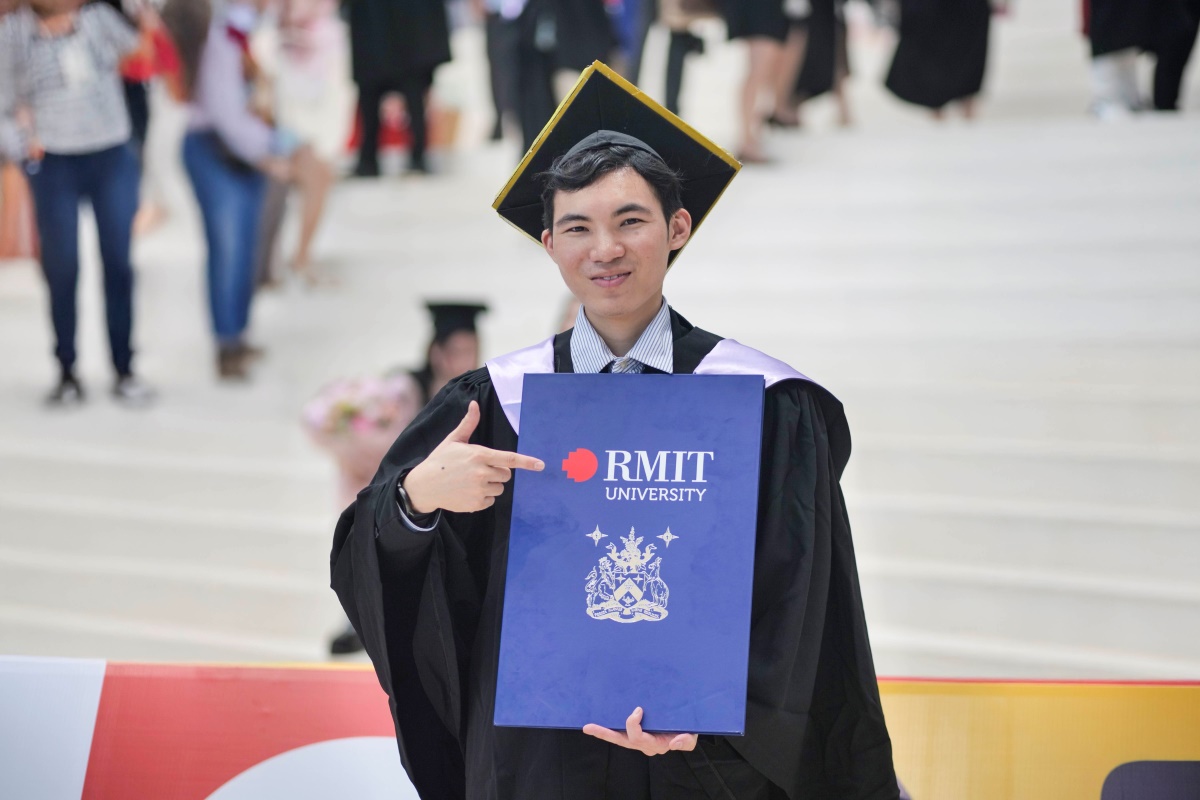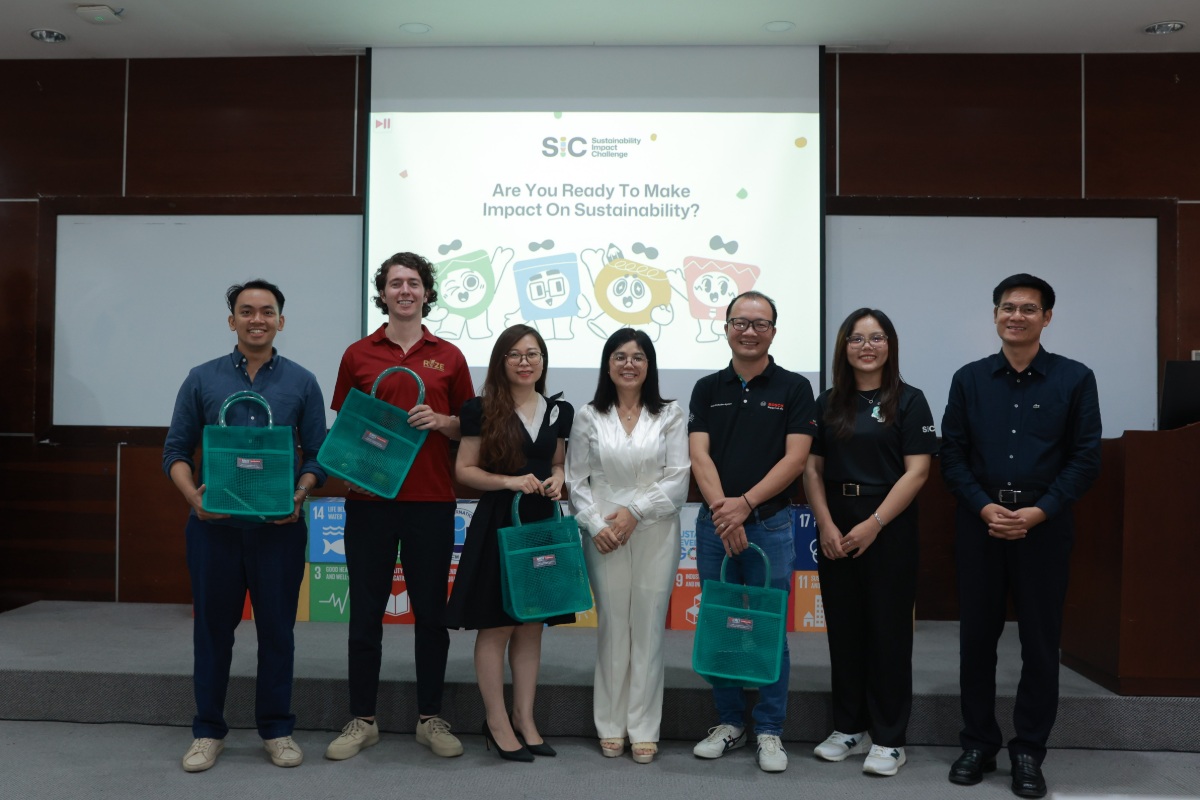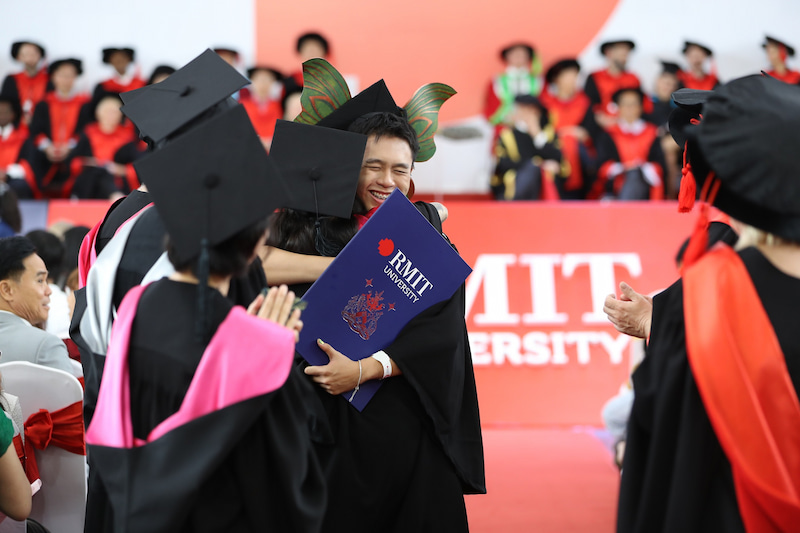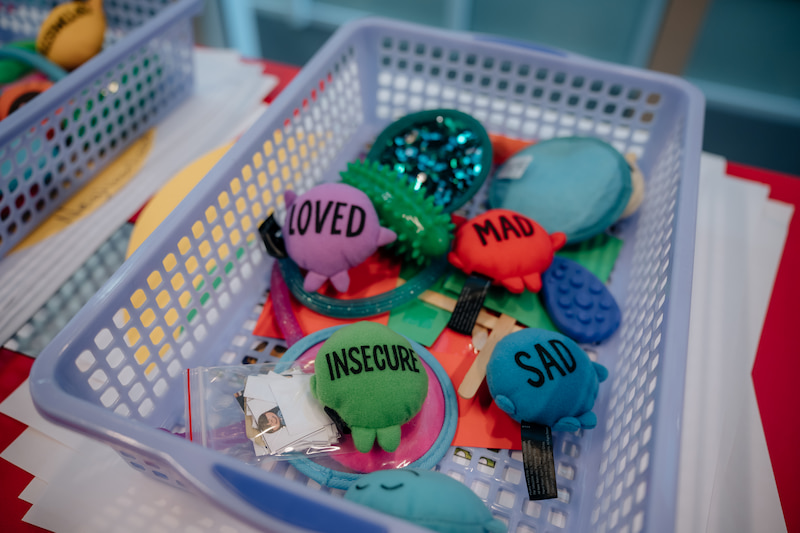From a life-changing scholarship to teaching English to rural children
Empowered by the RMIT Vietnam Opportunity Scholarship, Ha Viet Tinh has not only fulfilled his dream of attending university but also realised a promise he made to himself four years ago.
A launchpad for green careers: Sustainability Impact Challenge
On 17 April, the Sustainability Impact Challenge (SIC) 2025 initiated by RMIT University was officially launched at International University – Vietnam National University Ho Chi Minh City.
RMIT's largest graduation ceremony marks 25 years growing together with Vietnam
RMIT Vietnam celebrated a double milestone with its 25th anniversary and a record number of students – more than 2,900 graduands.
Vietnam Child Wellbeing and Safeguarding Summit 2025: A resounding success
The Vietnam Child Wellbeing and Safeguarding Summit, held on 28 February 2025, concluded with great success, drawing over 600 participants from across the country.







